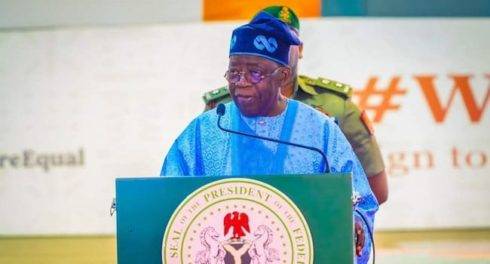Since assuming office, President Bola Ahmed Tinubu of Nigeria has faced considerable challenges but remains steadfast in his commitment to enhancing Nigeria’s economic resilience and reducing dependency on imported goods. His latest initiative, unveiled on July 29, marks a significant policy shift: selling crude oil to local refineries in Naira rather than dollars. This move is poised to revolutionize Nigeria’s energy sector and economic stability.
Transforming Nigeria’s Energy Landscape
President Tinubu’s decision to transition crude oil sales to local refineries in Naira is a strategic move aimed at bolstering the country’s energy security and reducing dependence on foreign exchange. By leveraging domestic currency for transactions, the policy aims to stabilize fuel prices, shield consumers from global oil price fluctuations, and reduce the pressure on the Naira’s exchange rate. Industry experts widely acknowledge that this shift could lead to substantial savings in foreign exchange expenditure, potentially saving Nigeria billions of dollars annually.
Economic Rationale and Impact
Nigeria, despite being Africa’s largest oil producer, has paradoxically relied heavily on imported refined fuel due to inadequate local refining capacity. This reliance has not only strained foreign exchange reserves but also contributed to economic instability driven by fluctuating global oil prices. President Tinubu’s policy addresses these challenges head-on by encouraging local refining, thereby retaining more value within Nigeria’s economy. The move is expected to stimulate investment in domestic refining infrastructure, create jobs, and foster a more sustainable energy ecosystem.
President Tinubu’s proposal to shift crude oil sales to Naira represents a bold step towards economic autonomy and stability. It underscores his administration’s commitment to innovative solutions that prioritize Nigeria’s long-term economic interests. As the policy unfolds, stakeholders eagerly anticipate its potential to reshape the energy sector and pave the way for a more prosperous future for Nigeria and its citizens.
Naira-Based Transactions: Reducing Pressure on the Foreign Exchange Market
President Tinubu’s administration has introduced a groundbreaking policy aimed at addressing Nigeria’s economic and energy challenges. One of the key features of this policy is the sale of 450,000 barrels of crude oil meant for domestic consumption to Nigerian refineries, with the Dangote Refinery serving as the pilot project. Crucially, these transactions will be conducted in Naira, rather than dollars.
By eliminating the need for dollar transactions, this policy aims to reduce the pressure on Nigeria’s foreign exchange market. The consistent demand for dollars has historically contributed to the volatility of the Naira’s value. Conducting oil sales in the local currency is expected to stabilize the exchange rate and provide a more predictable economic environment for businesses and consumers alike.
Fixed Exchange Rate: Ensuring Stability and Predictability
Another significant aspect of President Tinubu’s policy is the implementation of a fixed exchange rate for these crude oil transactions. This measure is designed to offer stability and predictability for the duration of the agreement between the government and the refineries, including the Dangote Refinery. The fixed rate ensures that fluctuations in the exchange rate do not affect the cost of crude oil for local refineries, which in turn stabilizes fuel prices for consumers.
Experts believe that this approach will have a positive impact on Nigeria’s economy. Ayo Agboola, an energy correspondent, noted, “The fixed exchange rate and local refining will lead to more stable pump prices, benefiting consumers and businesses.” This stability is expected to enhance investor confidence, as businesses can plan their operations with greater certainty about costs.
Local Refining: Reducing Imports and Stimulating Economic Growth
Promoting local refining is at the core of this policy, aiming to reduce Nigeria’s reliance on imported fuel. By refining crude oil domestically, Nigeria can save billions of dollars in foreign exchange that would otherwise be spent on fuel imports. This shift is not only economically advantageous but also strategically important for national energy security.
The policy also involves Afreximbank and other settlement banks in Nigeria to facilitate the trade between Dangote and NNPC Limited, streamlining the transaction process. Experts highlight the broader economic benefits, including job creation and increased government revenue. “This policy has the potential to stimulate economic growth, create jobs, and increase government revenue,” concluded Mr. Agboola. By investing in local refining, Nigeria is positioning itself for a more sustainable and prosperous economic future.
Table of Contents
Discover more from OGM News NG
Subscribe to get the latest posts sent to your email.














